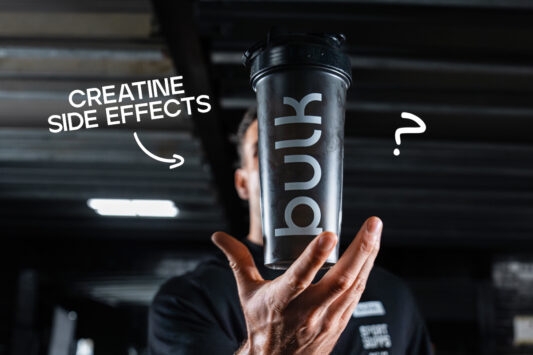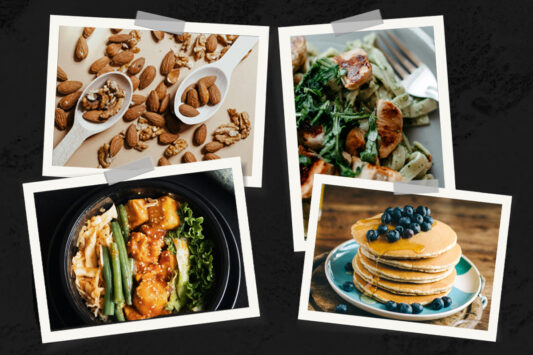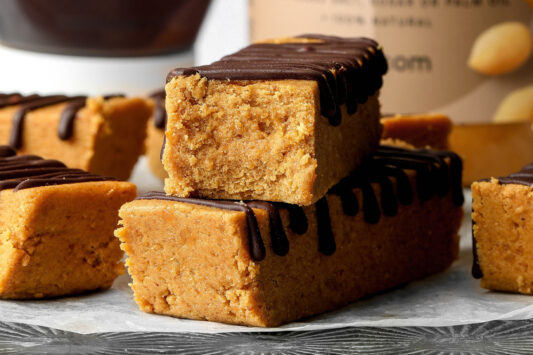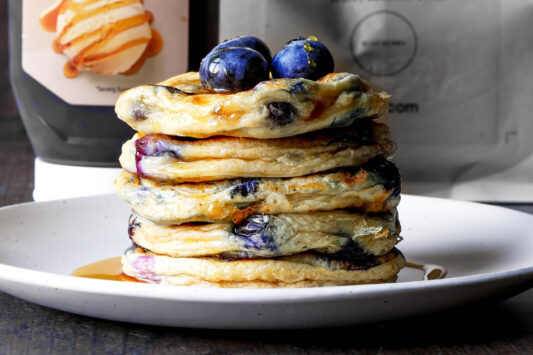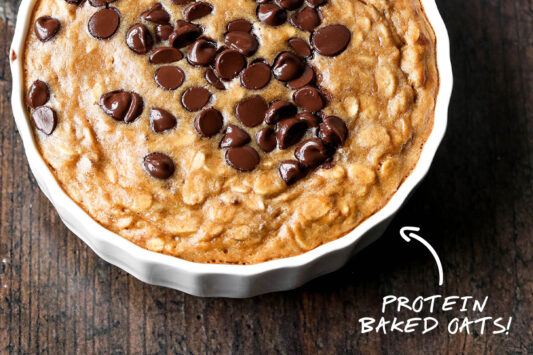Poor old carbs. They’ve been loved, hated, vilified and chopped right out of some people’s diets. What’s the truth about carbs? Find out here.
You already know that carbs are one of the three macronutrients (the other two being protein and fats). Think carbs and you probably think about bread, pasta, breakfast cereal. But delve into the makeup of the foods you eat and you’ll see that plenty of them contain some carbohydrates. Fruit and root vegetables are obvious examples. Dried fruit, jam and honey, jelly sweets, fruit juice too. What about yoghurt? That can be pretty high in carbs (from lactose). It’s not as simple as dividing your foods into “carbs, fats and proteins”.
What Do Carbs Do?
Carbohydrates might not be “essential” to survival, but they have a number of important functions. So think carefully before you cut them out, or even before you reduce them to low levels. Do your careful thinking whilst you’ve got carbs in your system: the brain needs around 100g carbs a day to function properly! (Low-carb “diet brain” suddenly makes more sense).
The macro-counting crew know that carbs clock in at 4 cals per gram, equal (in numbers, at least) to protein. So carbohydrates are a valuable energy source for the body. And we know that a reasonable amount is necessary for decent brain function. But how does the body use carbs?
The body uses carbs for energy. Too little, and it is likely to turn to muscle tissue first. Too much, and the excess glucose is stored as glycogen. If we aren’t active enough, or training specifically enough, to use glycogen stores, we’re likely to put on body fat. This doesn’t mean that carb intake will make you fat immediately. But it does mean that you should tailor your carb intake (amount, type and timing) to your activity levels and training sessions.
Aim to eat enough carbohydrate to fuel your body’s energy levels, but no more.
“Slow” And “Fast” Carbs.
The sugar molecules of complex carbs are linked together in a “complex” way, compared to those of simple/fast carbs which are just a few sugar molecules linked together. Simpler carbs are digested more quickly and get into the blood stream faster (jelly sweets, anyone?) whilst complex carbs take longer to be absorbed by the body. This makes simple carbs a better choice for post-workout, if you’ve trained hard enough…
What To Eat, And When?
If you choose to eat carbs before training, it’s best to use a slower, more complex form. That’s why oats are so popular: they provide the body with energy from carbohydrate, but the energy is released slowly enough into the bloodstream. You could also choose to eat a meal with rice, potato, bread or a wrap. The main consideration before training is finding a carb source which doesn’t upset your stomach, cause bloating, or give you any digestive issues.
For the post-workout meal or snack, choose a faster carb. Carb powders like Maltodextrin is a popular choices, or you could pair your protein shake with a piece of fresh fruit or blend fruit into your smoothie. If you want to have some fun with your carbs, have a low-fat high-sugar treat like sweets or flavoured rice cakes. Carbs combined with protein is known to increase the absorption of amino acids, helping with muscle protein synthesis.
We haven’t touched on carb-cycling, carb-backloading or carb-loading, but these techniques all use the basic idea of using carbohydrates to fuel performance and recovery from intense activity.
How do you take your carbs?
About the Author:
Nicola Joyce has been writing for (and about) sport, fitness, nutrition and healthy living since 2004. She’s also a keen sportswoman: her background is in endurance sport but she now competes as a natural bodybuilder, most recently winning a world title with the INBF. When she’s not writing content, she can be found blogging. Follow her here www.nicolajoyce.co.uk and on Facebook & Twitter (@thefitwriter) too.










